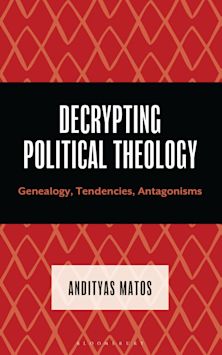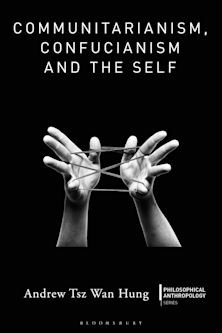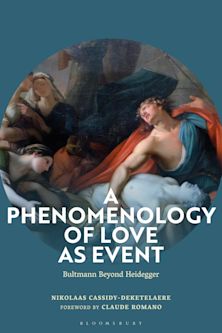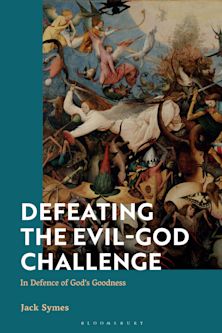- Home
- ACADEMIC
- Philosophy
- Philosophy of Religion
- Plantingian Religious Epistemology and World Religions
Plantingian Religious Epistemology and World Religions
Prospects and Problems
Plantingian Religious Epistemology and World Religions
Prospects and Problems
You must sign in to add this item to your wishlist. Please sign in or create an account
Description
To what extent can non-Christian religious traditions utilize Plantinga’s epistemology? And, if there are believers from differing religious traditions that can rightfully utilize Plantinga’s religious epistemology, does this somehow prevent a Plantingian’s creedal-specific religious belief from being warranted? In order to answer these questions, Baldwin and McNabb first provide an introduction to Plantinga’s religious epistemology. Second, they explore the prospects and problems that members of non-Christian religions face when they attempt to utilize Plantingian religious epistemology. Finally, they sketch out possible approaches to holding that a Plantingian’s creedal-specific religious belief can be warranted, even given believers from other religious traditions who can also rightfully make full use of Plantinga’s religious epistemology.
Table of Contents
Preface
Chapter 1: Plantingian Religious Epistemology and the World Religions
Chapter 2: Naturalism, Proper Functionalism, and the Evolutionary Argument against Naturalism
Chapter 3: Plantingian Religious Epistemology and World Religions
Part Two: The Prospects of Plantingian Religious Epistemology in Non-Christian Religions I: India and China
Chapter 4: Plantingian Religious Epistemology and Advaita Vedanta and Sa?khya
Chapter 5: Visi??advaita Vedanta
Chapter 6: A Madhva Vedanta Extension of the Standard Aquinas/Calvin Model
Chapter 7: Buddhism
Chapter 8: Neo-Confucianism and Daoism
Part Three: The Prospects of Plantingian Religious Epistemology in Non-Christian Religions II: The Abrahamic Religions
Chapter 9: Judaism
Chapter 10: An Islamic Extension of the Standard Aquinas/Calvin Model
Part Four: Objections to Plantingian Religious Epistemology
Chapter 11: Objections to Plantingian Religious Epistemology
Product details
| Published | 29 Nov 2018 |
|---|---|
| Format | Ebook (Epub & Mobi) |
| Edition | 1st |
| Extent | 332 |
| ISBN | 9781498552943 |
| Imprint | Lexington Books |
| Illustrations | 2 tables; |
| Series | Studies in Comparative Philosophy and Religion |
| Publisher | Bloomsbury Publishing |
About the contributors
Reviews
-
Plantingian Religious Epistemology and World Religions succeeds insofar as it provides a wealth of material that should serve to move the eponymous conversation in a meaningful directions for quite some time. The considerable value of Baldwin and McNabb's impressive work, though, is the wealth of resources that have been adapted to address the growing discussion surronding these issues. Thoughful readers will be able to discern which is which and can expect to come away with a deeper appreciation for the almost innumberable insights to be found along the journey.
Journal of Chinese Philosophy
-
Contrary to the pronouncements of a vocal few, the increasingly religiously plural nature of our world has not brought about the irrelevance of the questions of religious epistemology. Proposals about how to think about the epistemic status of religious belief remain crucially important, and Alvin Plantinga’s proposal stands out among those as uniquely valuable and powerful. What our religiously plural world does require is more of what Baldwin and McNabb do in this important volume — engage religious traditions in deep and substantive ways and then ask how those religious traditions might employ the resources of Plantinga’s work. This book is a valuable contribution to scholarship on Plantinga’s religious epistemology and on the broader question of religious epistemology within and among the world’s religious traditions.
James Beilby, Bethel University
-
Plantingian Religious Epistemology and World Religions is a substantial work that deserves a wide readership. This volume establishes Baldwin and McNabb as pioneers in the emerging field of comparative religious epistemology. While covering a wide selection of Asian and Western traditions and incorporating both historical and contemporary sources, Baldwin and McNabb present a sustained and engaging argument. This work should become required reading for all those interested in Plantingian religious epistemology and its potential applications.
Victoria S. Harrison, University of Macau, China

ONLINE RESOURCES
Bloomsbury Collections
This book is available on Bloomsbury Collections where your library has access.



































